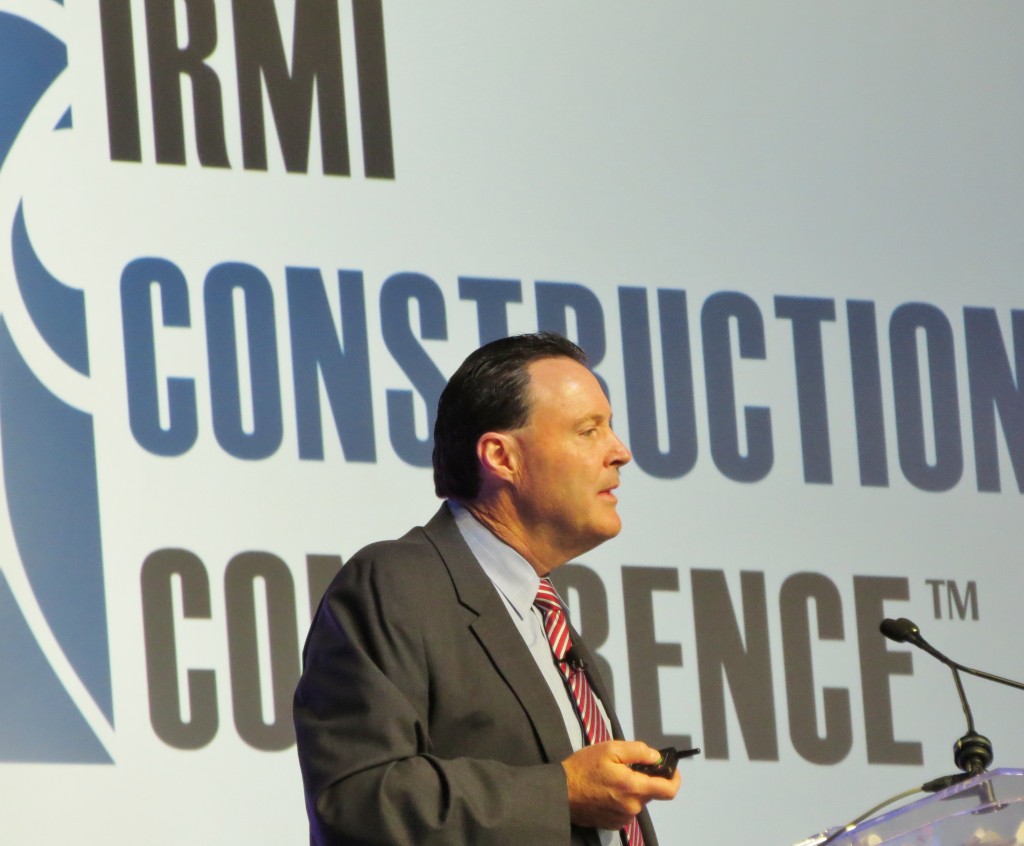Photo by Caroline McDonald
NASHVILLE–For David B. Walls, president and chief executive officer of Austin Industries, construction safety became a lifelong mission the day he had to answer to the father of a worker killed in an accident.
“Why did you kill my son?” he asked Walls over and over.
“Those words haunted me,” Walls said during his keynote address at the IRMI Construction Risk Conference here. “Nothing I could do would bring him back.” Tragic events such as this are “defining moments,” he said.
“But we need to get passionate about safety without experiencing a fatality.” Walls explained that the construction industry has a long way to go, with the worst record for fatalities, according to the U.S. Bureau of Labor Statistics.
Organizations, he added, should focus on the physical work environment and the company culture. They also need to realize that a world-class safety program leads to higher quality throughout the organization.
One prerequisite is strong leadership. A good leader takes the time to really listen to people, admits to making mistakes and shares recognition for a project well done with employees, he said. This person also should be consistent in addressing safety issues and assertive enough to stop workers from continuing on a job if unsafe conditions are evident.
An effective leader needs to be accountable and hold the entire team accountable when it comes to safety. For example, workers need to know that breaking certain safety rules could cost them their job. After all, he said, “you have a moral obligation to get employees home to their families each night in a safe condition.”
Walls recommended frequent discussions of company successes as well as failures. Weekly dialogues of near-misses, for example, can raise awareness about how they could have been prevented and encourage safe behaviors. Posting the safety records of contractors “makes them improve quickly,” he said. Walls advocates for both classroom and thorough on-the-job training.
Safety managers and employees also need to focus on what they might be overlooking, the “sins of omission.” For example, he said, “what are you not doing that you could be doing to save lives?” The litmus test, he added, would be for a manager to ask him or herself, “Would I let my child work here?”
Asked by an audience member how to get the necessary buy-in from a CEO, Walls advised, “Get the CEO to walk the job and see the hazards. Go to the job site and see where someone fell and where the accident took place. Two to three people a day are dying in this industry and it is unacceptable.”

